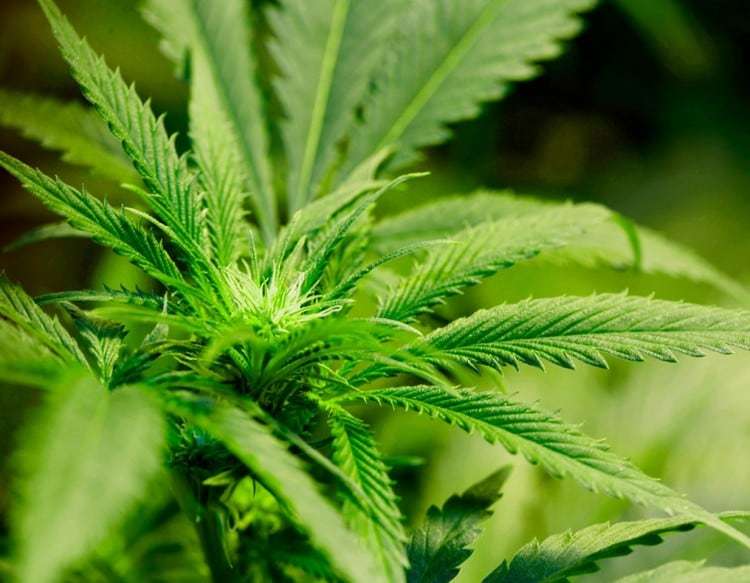The Volokh Conspiracy
Mostly law professors | Sometimes contrarian | Often libertarian | Always independent
A watershed moment for marijuana legalization

Ignored in the tumult of the presidential race is the fact that the 2016 election may be a milestone in the struggle to end marijuana prohibition. Five states - Arizona, California, Maine, Massachusetts, and Nevada - all have marijuana legalization initiatives on the ballot. Polls indicate that all five are likely to pass, as well as a medical marijuana initiative in Florida. Medical marijuana legalization initiatives in Arkansas and North Dakota seem too close to call. A recent nationwide Gallup poll finds that a record 60% of Americans support pot legalization.
If these five states all legalize recreational marijuana - adding to the four states that have already taken this step - it would be a major blow to marijuana prohibition nationwide. The California initiative is particularly important, because the state is so big and has such a large population.
Even if all of the legalization referenda pass, marijuana possession will still be illegal under the federal Controlled Substances Act. The constitutionality of sweeping federal marijuana prohibition was upheld in Gonzales v. Raich, the poorly reasoned 2005 Supreme Court decision holding that Congress' power to regulate interstate commerce allowed it to ban the possession of medical marijuana that had never crossed state lines or been sold in any market. In Raich, constitutional federalism became yet another casualty of the War on Drugs.
But even if federal marijuana prohibition is entirely constitutional and remains on the books, it will be extremely difficult to enforce without the cooperation of state governments. As a practical matter, the federal government has only a very limited supply of law enforcement personnel, and depends heavily on state police and prosecutors for help in waging the War on Drugs. If that assistance is no longer forthcoming in many of the nation's largest states, it is unlikely that Washington will ramp up its own enforcement efforts enough to compensate - especially since such action might be very unpopular in the affected states. The growing trend towards legalization at the state level might even incentivize Washington to repeal federal marijuana prohibition entirely.
There is an ongoing debate over the effects of marijuana legalization in Colorado, which voted to legalize in 2012. But, so far, there is no evidence of significant negative effects on health, violent crime, or fatalities caused by driving under the influence. Black market marijuana sales persist, but largely because legalization has not gone far enough (high taxes incentivize illegal sales).
The really big advantage of ending marijuana prohibition is not the possible health benefits, but eliminating the harm caused by the arrest and imprisonment of many thousands of people, many of them poor and disadvantaged. The FBI estimates that some 643,000 people were arrested for marijuana offenses in 2015, including some 574,000 for mere possession. While only a small minority of these arrests lead to prosecution, the arrests themselves can be traumatic and dangerous, and can end up damaging the educational and employment prospects of those targeted. Arrests also often unavoidably create confrontations in which suspects and police officers could be injured or (in rare cases) killed. Over 12,000 people are incarcerated for marijuana offenses in federal prison. I have not been able to locate good recent data on marijuana-related incarceration in state prisons. But the numbers are likely to be much higher. All of these arrests and incarcerations inflict serious harm on suspects, and expend vast amounts of law enforcement resources that could better be employed combating violent crime.
Whatever else can be said of state-level marijuana legalization, it greatly reduces marijuana-related arrests and incarceration. In Colorado, marijuana possession arrests have declined by 95 percent, and in Washington by 98 percent.
If marijuana legalization does indeed prevail nationwide, it might also stimulate efforts to put an end to the broader War on Drugs, which inflicts massive harm on society far greater than that of marijuana prohibition alone. Standard measures may even somewhat underestimate the large numbers of people incarcerated for drug offenses.
We should not be too confident about the results of Tuesday's referenda. Six years ago, the last California marijuana legalization initiative failed by a 54-46 margin, after some polls indicated that it might narrowly prevail. But public opinion has shifted since then, and this year's Proposition 64 enjoys much larger, double-digit leads in the polls.
If Proposition 64 does pass, it would help vindicate my 2010 prediction that generational change would ultimately produce a majority in favor of legalization. This may seem obvious in retrospect, and perhaps it should have been obvious back then. But at the time, I had to contend with prominent skeptics who argued that elderly voters and parents would block legalization for the foreseeable future.
Be that as it may, the success of marijuana legalization may turn out to be one of the rare pieces of good news in what has otherwise been a terribly depressing election year.


Show Comments (0)